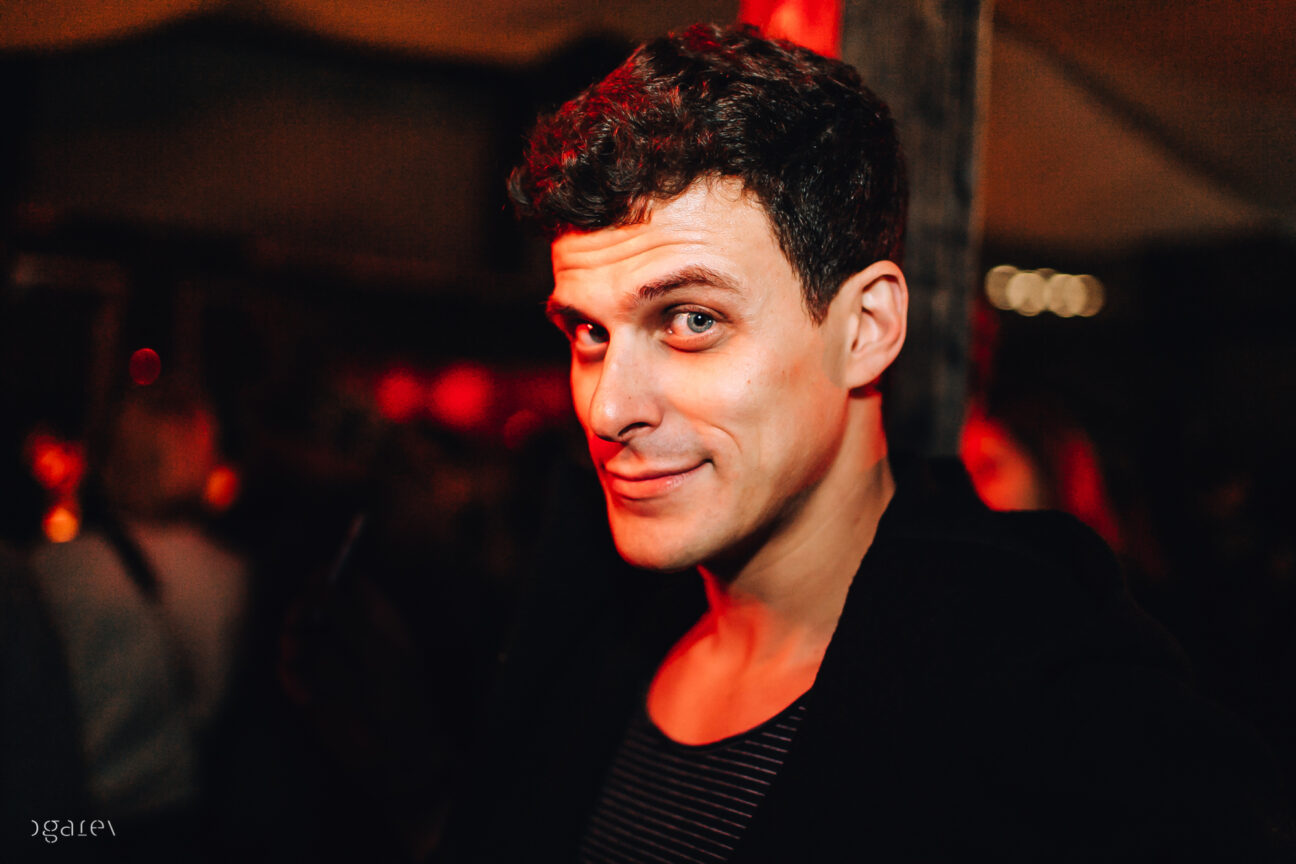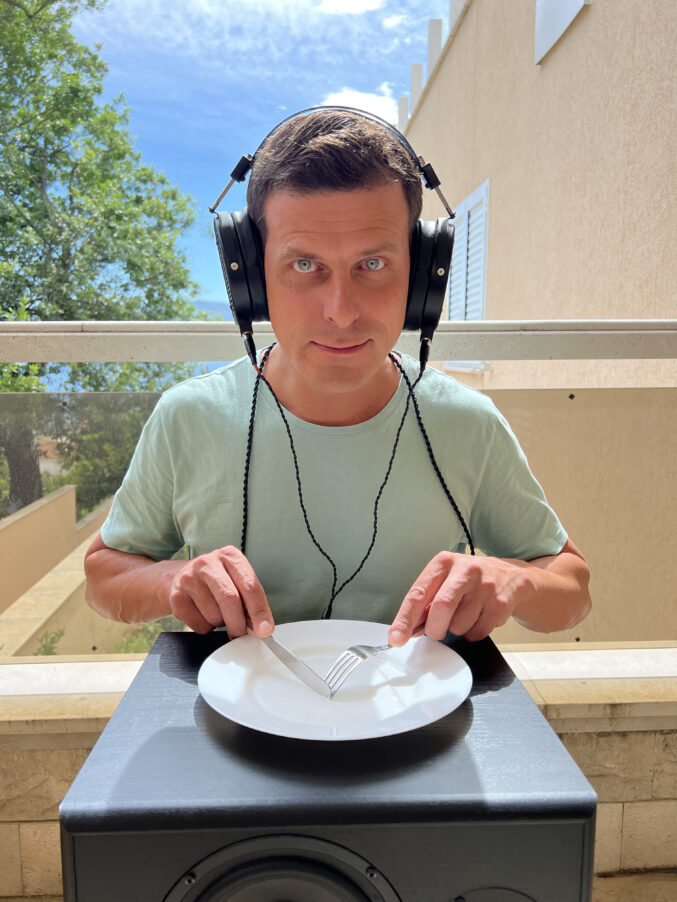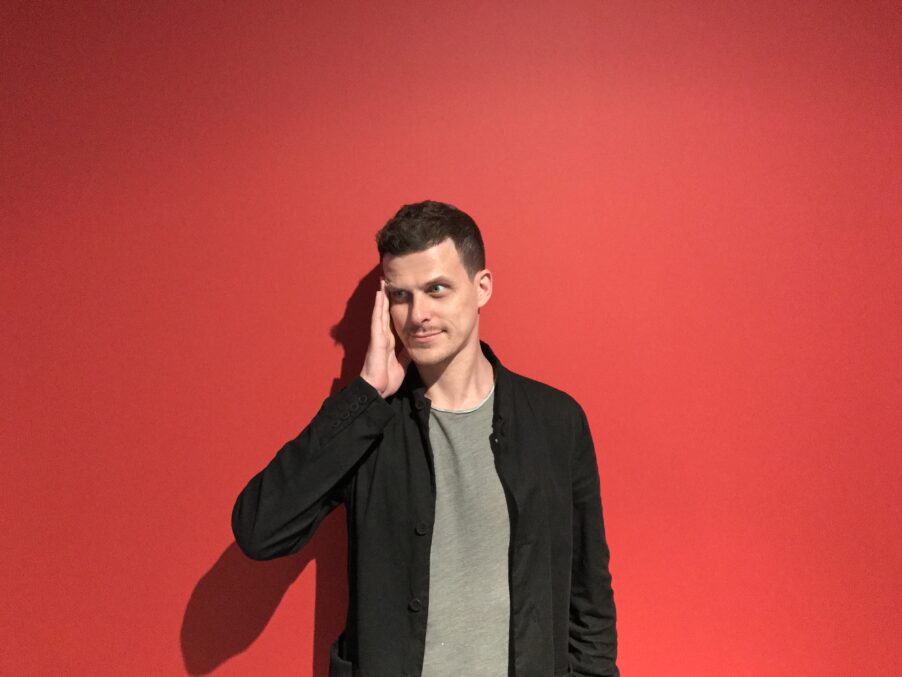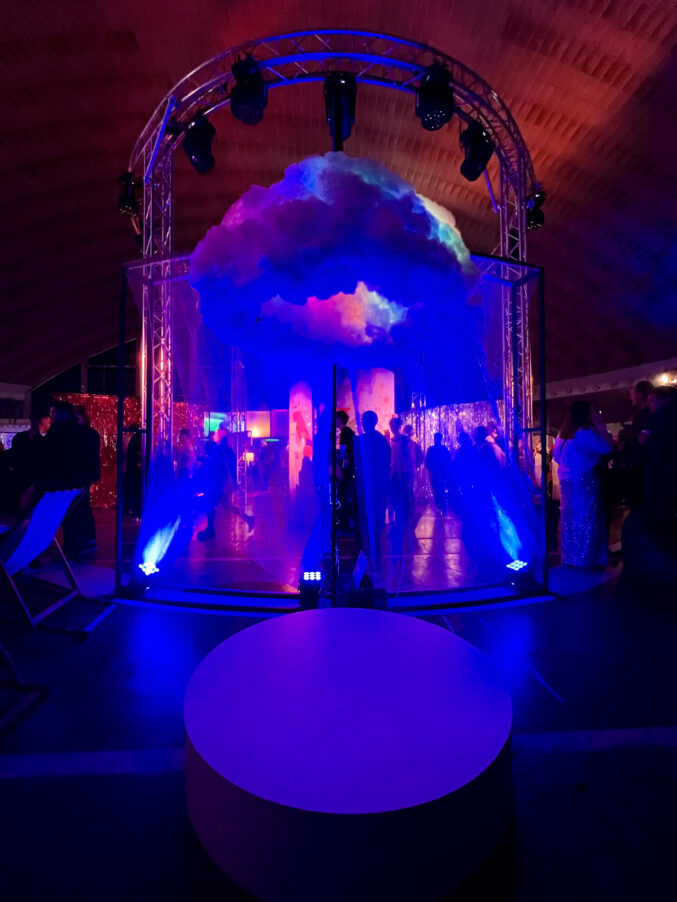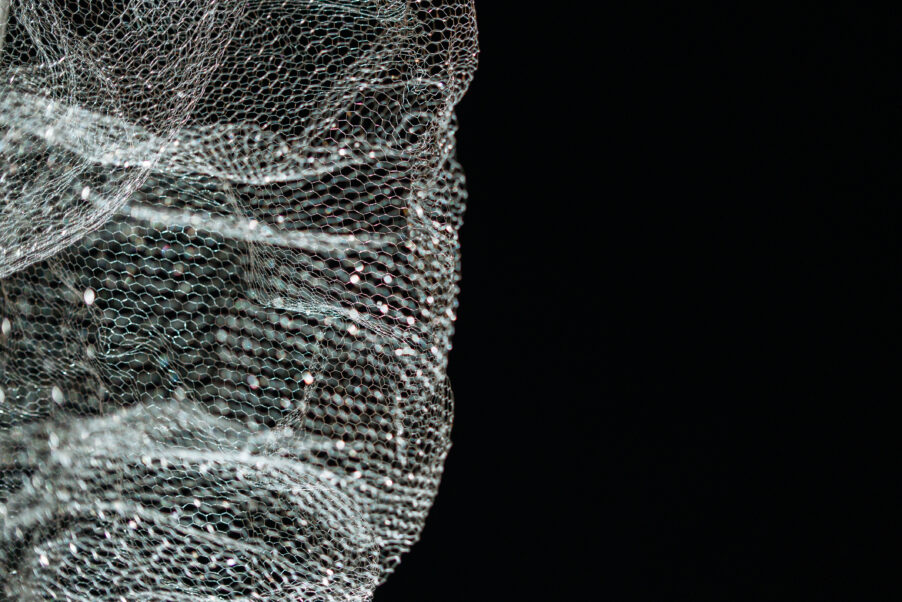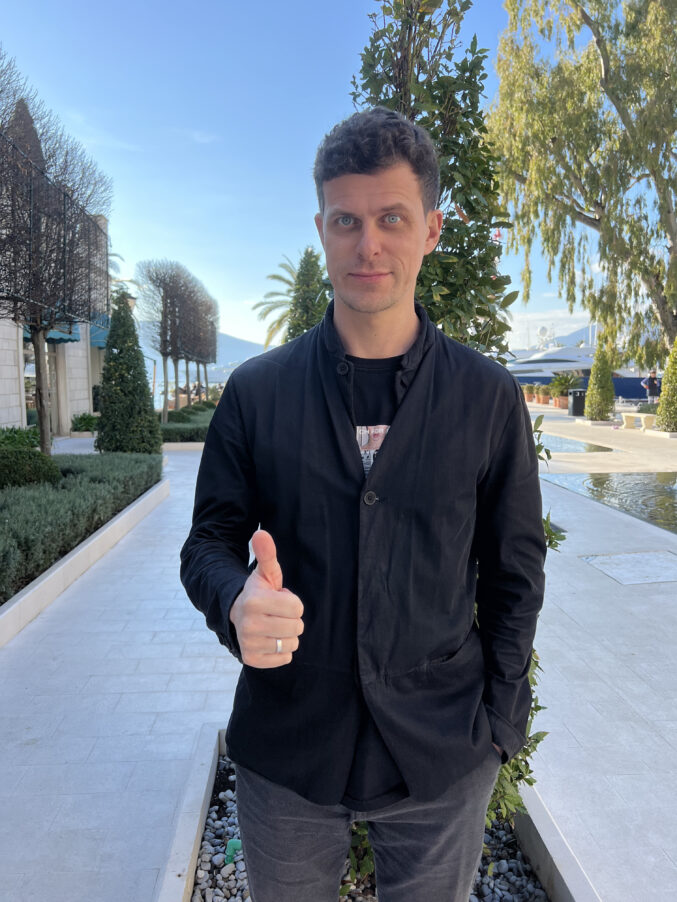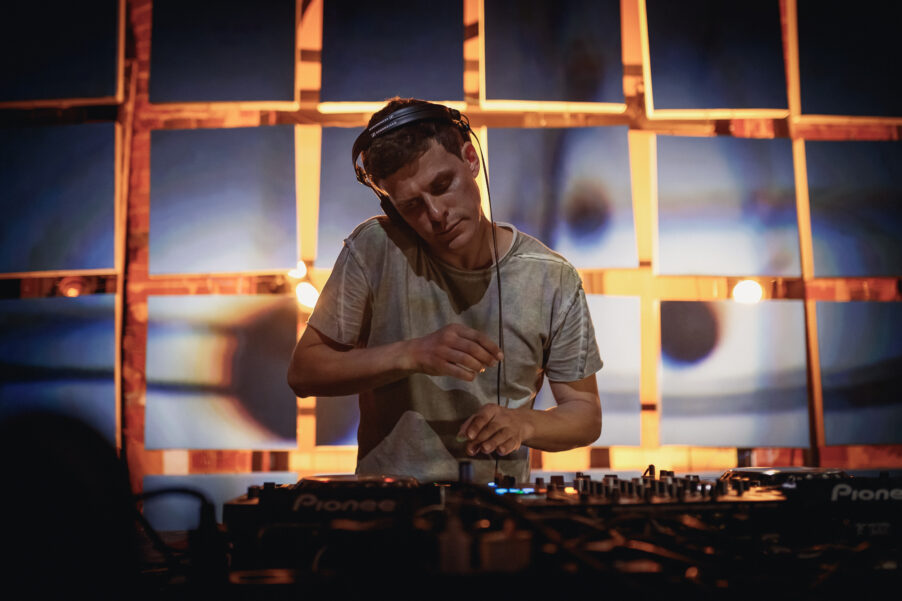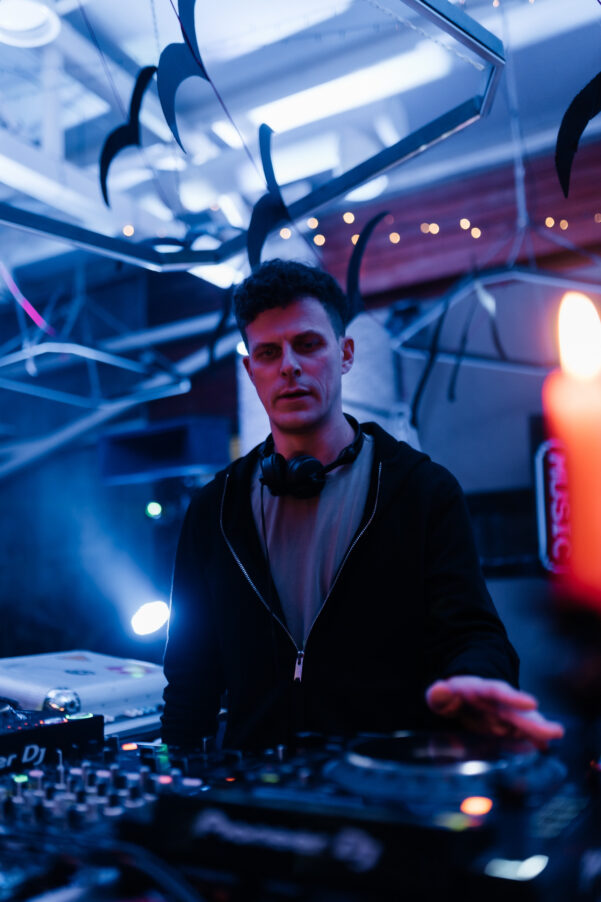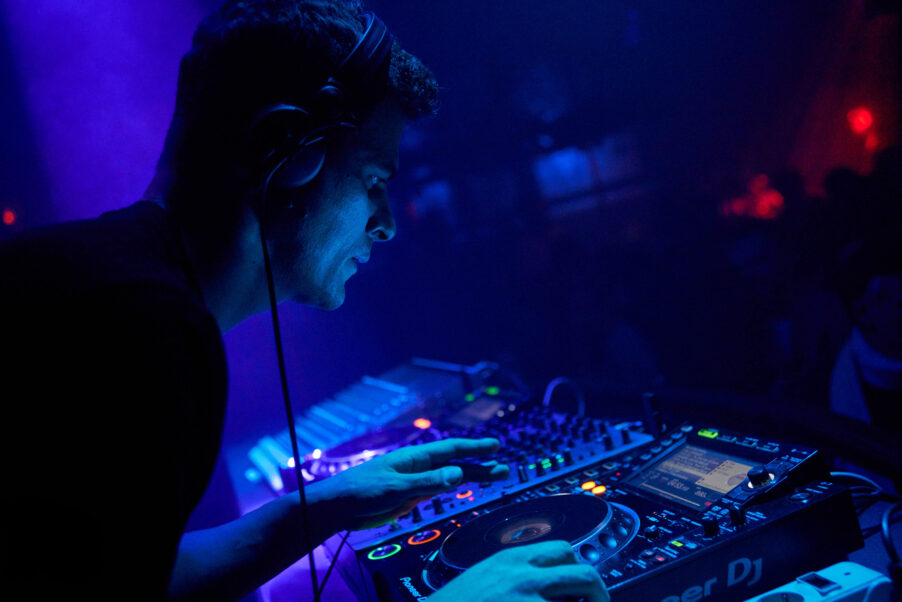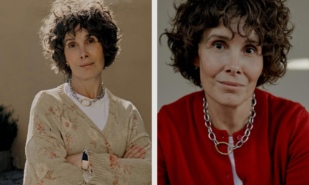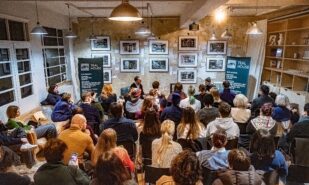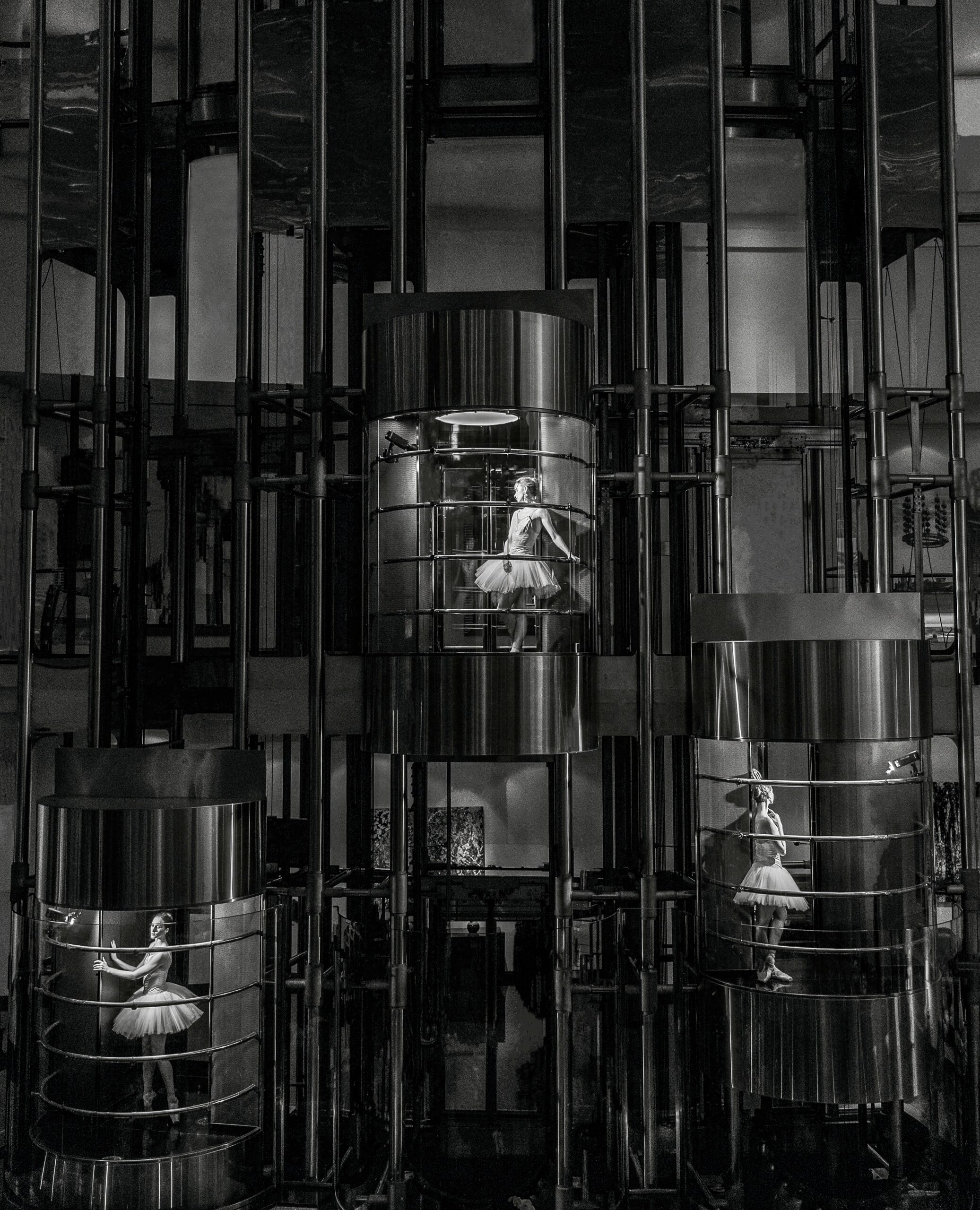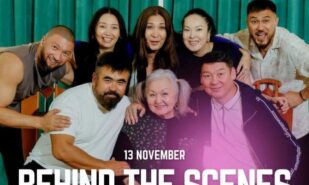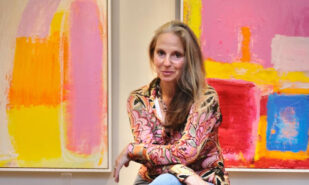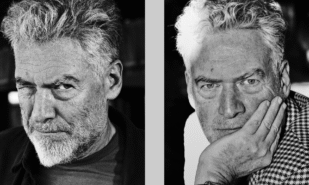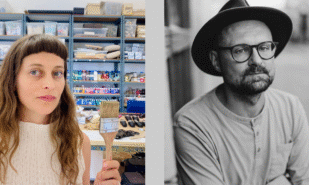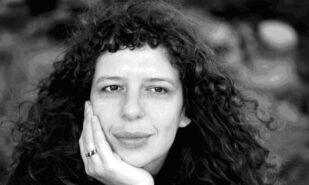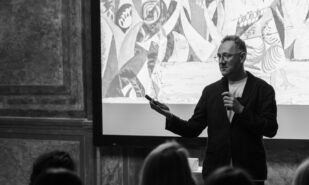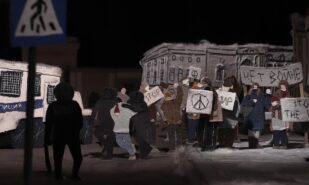“Movement generates movement.” Interview with musician and producer Vasily Bvoice
Vasily Bvoice is a DJ, producer, composer, event organiser and lecturer with over 25 years of experience in the electronic dance industry. His career spans such significant projects as Deepmix.ru, RTS.FM and Rinse FM, as well as performances around the world, from Asia to Latin America. Bvoice is a regular guest of international festivals, including Exit, Outline, Signal, Kazantip, Epizode, GAMMA, GMID and others.
Vasily Bvoice has been fond of electronic music since the early 90’s, inspired by the works of Brian Eno, Harold Bad, Can, Joy Division and Einstürzende Neubauten. He began experimenting with vinyl turntables in 1996, when the Russian techno-scene had just been born and was still in the shadows of underground culture. The first performances and recognition happened in clubs that were pioneering electronic music in the post-Soviet space.
As a music producer, Bvoice has released dozens of vinyl and digital records, collaborating with famous artists dOP, Masomenos, Wareika, Pier Bucci, Barac, Bruno Pronsato and many others. He organized large-scale events with the participation of such stars as Sven Väth, Ellen Allien, Mathew Jonson, Max Cooper, Dasha Rush, dOP, Egyptian Lover, Afrika Bambaataa, Mad Professor, Noze, Aquarius Heaven, etc.
In addition, Bvoice is the producer of the Meshsplash multimedia studio, as well as co-founder of the Svoboda Zvuka startup and the Synthesis multimedia art studio. His contribution to the industry includes the creation of music content for projects such as Native Instruments’ Traktor and the Mubert generative music app.
London Cult. (LC): You have been living in Montenegro for a long time now and managed to get a job and establish yourself. Tell us how you moved, how did you solve current issues, what projects did you have to leave behind, what did you have to start from zero, what have you come to now?
Vasily Bvoice (VB): Two of the most important conclusions I came to are worth starting with and expanding upon.
The first one is I didn’t see the move as an escape. There were two categories of people: those who called me to come to them, and those who said, “Vasya, come back! We miss you.” And for such people, I developed a formula, which I then came to believe myself, that we are not running away, we are not “refugees”, but we are going to see the world.
In fact, I had lived in one place for forty-two years at the time, without going anywhere longer than on a three week vacation. So I didn’t have that experience, I was full of fears. “How am I going to communicate? I have already forgotten English, and I don’t know any other languages…”
This wording, “to see the world”, was the most important thing. I came to believe in this formula and, in fact, that’s how I’ve been seeing my life ever since. Because there is a lot of culture around to enrich yourself with, a lot of new people, horizontal connections, acquaintances, and that’s great. You really see it right away. There is no such thing as immigrants to Moscow used to say: “You here, you already have a bed, bananas growing, and you do nothing. You can afford to do nothing. And we, immigrants, are always pushing you, the locals, because we have no other way out, we are always developing.”
And now we are in this status. Once comfortable capital dwellers we found ourselves in such a status where we needed to prove ourselves. Moreover, we had to do it essentially from scratch. After the relocation, part of the Russian-speaking community perceives me as an already established hero, a media artist or something else. But to most Montenegrins or the other part of the Russian audience who did not know me until now, I had, in fact, to show who I really am from scratch.
And that’s a very cool experience, too. Because you forget partly all the regalia and start moving from ground zero. If you know how to play records, get to some performance, play, show your professionalism with your hands. As an electrician, carpenter, etc., I don’t know. Show your magic, show what you’re good at. And then it slowly begins to work.
I’ve worked with Misha Oger, who has a Hip-hop Academy since Moscow. And the first very striking result of our collaboration was that we came up with the idea of doing hip-hop oriented Street Life Camps for kids. Hip-hop is not quite my thing, but I can scratch records and do some beats. And the task was to make an educational project. That is, the children who came in on Monday, that week already built sound systems with their own hands on Saturday, on which they performed a track that we’d created together with them in that week. Along the way – this was not my part – the children went for walks, developed their own tags and naming, drew graffiti on walls, danced break-dance and so on. So in these six days they already formed some understanding of street culture.
They watched cool films about hip-hop, about street culture. And we recorded a song together at the end – a musical release. We wrote in the group chat to all parents that each of their children was going to perform at the prom with their two punches, four lines, their dance act and so on. Everything was written from scratch: from slaps, clicks, someone pulling a note or two on an ukulele… And, at the end of it, we sometimes saw how shy children were transformed. This is actually a unique moment, the most powerful one – when you leave on Saturday evening after the final party and receive messages in the group chat from the kids’ parents. Like, “Hey guys, what was it? Our child used to be shy singing, and now we hear this! Wow!”
It was the first cool case that made it clear that we should do fine. Obviously, the country is seasonal, and somewhere in the autumn/winter all this winds down, and you realise that you need some remote projects. On the spot, of course, we didn’t stop doing events, although I was already thinking back in Moscow, when COVID began, that I had had enough, that it wasn’t my thing anymore, that I had to keep growing, to develop. But then Ivan Logos came over, who makes the GAMMA festival in St. Petersburg, a huge one, for 5 thousand people. It’s a serious multidisciplinary event – not only about art, not only about music, and not only about electronic music. He said to me, “Let me do the event, and because you already know everything around here, you’ll help me with technical production, compile the line-ups, find cool local artists and stuff.” I said, “I’m fine operating under such a wing, I’m willing to move because I’m probably not ready to be a motor from scratch anymore.”
I’ve kind of already gone through it once and I know how hard it is doing something like this. But when I’m given understandable tasks like finding something or talking to someone, then it’s easier for me, I become a managerial resource. We were joined by another common friend – Andrei Zverev, the former front-man of the SpaceCats project, as well as an experienced producer and event organizer. Together we did a concert of Delfin and brought over the French act dOP, which is a separate story.
There is this luxury village here where they took the undeveloped peninsula of Luštica and turned it into a modern cluster with a marina holding 120 yachts, and they have their own entertainment programs. And most importantly, there’s this holy of holies: a breakwater with a beacon at its end. It’s a new building, but it’s beautiful. And we had this desire of making a party there. Naturally, we went to the managers, and they said: “No, no, goodbye, we’re not interested in this, we have pensioners, we don’t need any movement or noise here at all.”
Ivan said, “Oh, this is interesting!” That’s also an interesting experience, to learn from a person who has repeatedly passed through these circles. “Now we’ll have to come here again about five times.” Because in my paradigm, “no” means “no”, and Ivan is not like that, he says, “Let’s do it differently.” And so we packaged and repackaged our offer until we nailed it. An employee of this company, its chief architect from London who builds all these marinas, Philip Jones, came to one of our events. He’s a wonderful man. An old raver. He came with his sons, and he said, “Finally, a normal party! What’s not working for you? As the main architect, I’ll try to use my influence.” Like this, slowly, we came to the point where we were told: “Well, maybe in April, if it’s not too late, if it’s not too loud…”
Long story short, that party took place, but most importantly, we had to use a home projector for our visuals that we somehow managed to secure in place with duct tape at the last moment. Professional equipment was not easily available at that time. Now we already found one, but it was very difficult, for a year our requests yielded nothing. So this home projector became a trigger. We lit up the beacon, and the very next day we got a call from the managers saying: “Oh, what was that? Would you consider doing an installation for us that would work year-round, constantly turning on at sunset and turning off in the night?” And we did this installation with artists and neural networks.
Actually, it was our first cool case – I’ve always wanted to do media art, multimedia, content, mapping and everything we are doing with interactive installations now, and it happened. Events, it turns out, still accelerate the processes of integration, it’s hard to deny it. It’s such a quick intervention. You do something, and you get noticed right away. Sending out emails and presentations from home, going to all the conferences – it all takes a bit of time. But when you make your own event, highlight it online, and Bam! – you’re already sort of noticed and somewhat understandable. You’re already recognised as an active figure.
Probably, this was the beginning of the creation of our Synthesis multimedia studio and of our event agency of the same name, in which we make all kinds of events: concerts, raves, corporate parties and so on. Now we have come to participating in a cool festival made by another major player here – Porto Montenegro. Also a developer, also with yachts, more than 600 moors in their marina. The organisers and management are always doing festivals of jam, jazz, fashion, etc. This was a slightly different format – a near-electronic festival about technology and art. Among last year’s performers were acts such as Morcheeba, John Malkovich, and Francesco Tristano, an electronic composer and at the same time an excellent pianist. And this year there were Nouvelle Vague, Hernán Cattáneo, and Isabella Rossellini.
This time around we were entrusted with two installations already. A separate art garden was allocated, where we installed an interactive screen of 3 by 3 meters, which can be controlled at a distance. Since the festival is dedicated to nature, and there is a lot of nature here, we had to insist that we don’t want to use just leaves or dew droplets in our art objects. Because nature is more than that: nature is space, it’s particles, it’s gravity and so on. Together with media artist Yuri ‘Tonotpik’ Tolstoguzov, we created a digital art installation with two interactive modes. In the first mode, you can control the rotation of the figures using your hands, creating unusual shapes. In the second mode, a digital sea comes to life in front of you, and you can make a storm, raise the waves to the ceiling and even change gravity.
It’s a kind of magic, watching people who haven’t seen anything like this, admire it. Artists do something like this on Piccadilly regularly. But here it is quite unusual, and therefore it’s very cool to do this missionary work, to promote, and to watch who interacts in which way. For some, it’s too much, but others say, “Wow! What is that?” Slowly, we started doing other projects. We did a video mapping on a yacht. For an IT company in Belgrade we made this talking cloud where you put your head in, and it tells you poems, and bolts of lightning spread all over it.
However, this isn’t developing quickly at all. We are accustomed to the way we did things back in Russia when you agree on something one day, and it’s done the next day. It’s a little different here. In Europe, this is due to the fact that everyone is well fed and not rushing, so the processes happen at their own pace. And here it has to do with this worldview position called ‘Polako’. Polako means easy-going, no hurry. And that’s everywhere here. In the morning, we’ll have some coffee, and then, maybe we’ll have a nap, and then, maybe we’ll do something. And you have to, of course, take this into consideration.
Even super-active guys who have been here for a long time, or foreigners, or Serbs, or even the Montenegrins themselves sometimes told us: “Guys, do you want to make a cultural revolution in the first year? No, you have to make sure that someone sees you in five years. You will send a presentation now, and in six years someone will write to you: “Did you send us this thing? Let’s do something.” Anyway, that’s the pace. So I thank the world around me for having something going on here at all. In principle, if we list all the things we’ve done, it already seems like a lot. If we write out all the checklists, then something is definitely moving somewhere.
The most interesting thing is when I am asked: “What are you doing now?” If my wife is nearby, she immediately smiles, because I have a couple of dozen active directions, and I never understand what best to tell a person so that we can have something done together. Do we make weak current points and install sound in smart homes, or do we write music and offer track mixing, or are we about events, or are we about media and art?
But it’s all more or less borderline, except for the latest business directions that my friends in France offered me to join. I decided to play this game of earning. There is such a moment of achievement, the moment of some good deal, a finished party or project like with the hip-hop thing, when parents write to you: “Incredible, what has become of my child!” In business, too, I noticed that there is this cool energy when you did something and it turned out well. I haven’t yet fully brought any startups to the end, but I imagine that this is the same powerful effect when you invested, say, 4 million, and sold for 40, and you probably feel flying in the clouds at this moment and you think: “Hell, what a return!” It’s very akin to the creative energy that you get on stage. Something cool is done, and there is this feedback.
LC: Do I understand correctly that all this is already wider than just the Russian-speaking community in Montenegro? Does it now cover all locals and tourists and expats as well?
VB: That’s the most interesting thing. Of course, I cannot deny the Russian-speaking community, it’s great here, it’s beautiful. These are people more understandable to us, speaking the same language, with the same cultural code. But the sporting interest is about making friends with the local audience. With foreigners, with the British and the Americans we meet here, things are probably a little easier because we’re all from big cities, we all went to theatres and museums. There is no such thing here. When there’s an exhibition, it fits in one room with five works hanging on the walls. We’re not even able to list Balkan poets, writers or artists. Yes, there are quite some, but it’s not the German or Italian culture where we’ll immediately recall a lot of names.
Where does this come from in Montenegro? First of all, it’s because this is a beach country, seasonal, it’s more important to build a house, rent it out and, actually, drink some rakia. And nobody has instilled other values, there was no need for these museums, cultures, festivals and everything else, so, of course, things happen slowly. At first, it seemed bewildering, now it’s more or less clear when we understood who does what. In general, foreigners or those who went to study to the “big land”, of course, are interested in these things. But those who are local, they often don’t care.
For example, for the above-mentioned festival we’ve done, in addition to the interactive screen, these wire-mesh clouds that we call bionic. These are strange art objects woven from mesh, which were supposed to hang in the forest, but the organisers didn’t bring the trees. So we had a bare frame, like a dance floor, but without the dance floor, with art objects on it. These mesh clouds were hanging 6 meters high, and during the day they almost disappeared because of the effect of metallic paint in the sun. And at night we scanned them and painted them in different colours using lighting devices.
So these clouds were hanging in the garage of our producer Andrei – this improvised workshop, because it’s not his occupation. We had one artist move unexpectedly to Belgrade, so nobody was doing any prototyping, and, unexpectedly, the director of the company, who didn’t have to do it at all, took it up. He turned on his creative mode and started going shopping, buying different meshes, when one didn’t work, he went for the next one. So we made these clouds, hanged them in the yard, and the neighbours went out asking: “What do you have there, is that for fish, or what?” That’s pretty much how things are there.
And each time you realise in hindsight that you were running around with some holographic images for the old city, offered something to the Opština (the local municipality or the mayor’s office), and they don’t just turn you away, they simply don’t answer you. Here, in general, digital communication is almost undeveloped, you need to meet with everyone in person, have at least a coffee together, sit down, smile. Then something’s going to happen. Maybe not immediately, maybe you need to have coffee a dozen times.
At first, when we went around with our proposals, we took the level of modern technology that we’d like to use so that our senior friends from Dubai or New York would look and say, “Wow, look at what these guys are doing!” But then we descended to Earth because we realised that this kind of thing is not particularly in demand here. If our best friend was the president who would trust us, probably it would have worked. But since we’re starting from the bottom, it became clear that it’s important to inform, to tell people things like: “This is a cow, it has to be milked in order to get milk. This is a mesh, look, in a month we will hang it, and two days later we will illuminate it with devices, and we’ll have a video like this. Isn’t it fun? It’s called an art object.” Literally.
People here have a slightly different, interesting perception of information. I even try not to tell them three thoughts in the same sentence. This is probably a lot for many people as it is, but we are probably used to it. But here you have to actually go step-by-step. If you’re setting a difficult task, it’s advisable that your questions could be answered with a plain “yes”, “no”, or “I don’t want it”. Then, with a whole ladder of such steps, you can slowly get to some important decision.
LC: When you chose where to move, what part of the world to go to see next, did you know any of these details of the local life?
VB: Why was Montenegro chosen, besides prices and easy legalisation? Andriesh, my most beautiful friend, was and still is here. He moved to join his parents in 2022. When my family and I decided to move, I started calling everyone, asking: “How much does it cost to rent an apartment, is it easy to get a residence permit, how long does it take and what’s the path to legalisation, what taxes are there?” Standard key issues. generally. And so it became clear that Montenegro was the place where we could go with our Moscow teaching and DJ incomes, at least for some time. Now, these two years have come to an end. Super respect to the country!
Back in Moscow, Andriesh pulled me, timid and shy despite being from a family of teachers, into the Higher School of Economics to lecture on sound design and sound art. He created a great department, but eventually it collapsed into an online format. I’ve worked there for a couple of years: the first year while I was in Moscow, and the second while I was on the road, and for another year I kept pulling my first and second year students. In a word, I gained a great experience, so when Andriesh called me to come here, he said: “Come over, we’ll do cool projects, open up schools.” He also burst into this process here, he writes music, shoots videos, works with immigrants, both fresh and well established, living here for a long time, teaching teenagers and children, making all sorts of away camp-ups for them, conducting motivating lessons.
But we live quite far from each other by local standards, an hour and a half one way, the other end of the country, one might say. Andriesh and I do meet, but we almost don’t do any projects together. He pulled me into this cool online project of his DOS school (Digital Old School). We did an electronic dance compilation with people who live in different parts of the world. People with no or little skills came to my course and two months later they had this co-created and co-mastered final product, beautifully decorated with a super-cover – one of the guys was a designer. It was a five track Various Artists release. This also became a new direction for me, because in Moscow I was just beginning to teach music. I just thought, why not, and started doing more in this direction.
I was so excited, thinking that lots of students would come running to me. But it didn’t turn out that way. That is, the locals could come running, but they don’t have the money for my fees, because I don’t want to work for pennies either, and they can’t afford the modern market rates because salaries are low in Montenegro. So I had to come down to Earth from when I thought that I would set up a lesson grid, earning 50 euros per hour every day, all super-smooth. But it was sporadic. Two or three students a week, studying two or three times. But, in any case, it entailed cool consequences, because people starting reaching out to me.
For example, now I work with people who need to mix their tracks. Once somebody said to me: “I write music, but I can’t get it taken up by a cool label.” Well, I have trained ears, about 30 years of practice, so I said to them: “Let me try it.” I did, and it turned out well. And slowly customers started appearing in this direction as well. My life has become this complex web. There are a lot of directions at once. I try to sit down on Sunday and write down what I’ll be doing every day of the coming week. Or scatter things by the hour. Writing music for two hours, researching online for two hours or working on our media studio or attending meetings. I’ll dedicate the rest of the time to something else. It’s fun. It’s development.
Sometimes, of course, my brain explodes. But, in general, I noticed that I gained some sort of performance stamina taha I didn’t have before due to laziness and the fact that I had everything in Moscow. You just go play sets and buy your favourite records. There’s also DJ’ing here. At first there was very little of it, now there’s a little more, but it’s not a walk in the park. I know this is a seasonal story, too. Yes, new great cocktail bars have opened, and yes, I can finally play my music collection. Clearly, in October and November it’s not a given that this will go on and have much demand. An interesting fact is that earlier I could play here every six months, and last week I played 4 times, that is, for me it’s about the load I had back in Moscow. But in Moscow, I lived with only that and I was happy. Four gigs, twenty thousand roubles each – cool, I can do nothing.
This is called “doing nothing” in my modern paradigm. Back then it seemed to me that I was doing a lot, collecting music, etc. But in fact, it was probably more about pleasure, and I probably could’ve achieved much more. After moving, I understood that. Because I currently play the same four sets, but it’s like this pleasant extra, an addition to another professional life, and there are still many working areas that I have time to develop. Back then it seemed to me that I was a professional and that was enough. So during this trip, my ambitions suddenly grew wider instead of shrinking.
Here is another thing I noticed. I haven’t thought about it before. Here, on the one hand, it’s a negative that you go to a café to work while everyone else is resting, everyone is partying, everyone is on vacation. It’s hard to focus. I’ve more or less trained myself to do this, but I still get distracted from time to time. You think about the other people: “Damn, they’re partying there, and I’m sitting here, doing something, building a spreadsheet.” And now I thought that there’s also an interesting other side to this that you see a lot of accomplished, not necessarily wealthy, but definitely accomplished people.
I am always interested in professionals and people notable in their field. Examples of people succeeding in their own directions, not necessarily musical. Yachtsmen, owners of yacht or construction companies. There are a lot of them around here, and you look at them closely – it’s interesting how they live, how they do something. You come across them in life. And, in principle, their life sometimes resembles yours, and you can learn some cool lessons. This is the reverse side: there are a lot of tourists here, and you are not like in Moscow sitting somewhere far away from them, here everything is near, two kilometres to the central square, sit in the only café where they serve good coffee, and the networking just starts happening, there are people around, and you get acquainted with someone. So besides distractions, there are also creative moments when you watch them, meet them, communicate with them and learn something valuable for yourself.
LC: But despite all these beautiful moments, you and your family still decided to go to see the world further?
VB: Unlike me, my wife Zhenya has lived in many places, has travelled, she has 3 years of life in Santa Monica in the US. I didn’t have that experience. She is more relaxed, she speaks English perfectly. I had fears because I went to business meetings and could only mutter something unintelligible. I had this fear of moving, but here it’s like a transit point. And my wife immediately told me that although it’s beautiful here, she’s not ready to live here all the time. And I also understood that we are here for a short while, at least because they don’t give passports here. There are rare cases, three out of a thousand people I know received passports, people who have been here for 15-20 years or were even born here. Teenagers, children of friends. Therefore, it seemed to us that, in principle, there is no point in sticking out here for a long time if you’re not content with everything, or you’re not a live-fast type of person, or you’re not one of those Polako people, for whom everything is generally OK. Or if you’re not super-enlightened, a real zen-indian, who’s always cool wherever he goes. Or you if didn’t find your comfort zone that you don’t want to leave.
I probably found it and was just hanging out for some time until I felt a rush in December driven by a complete lack of work. I’ve never had that in my life. I was hyperactive for about four months, until March. Usually, when something disappeared somewhere, then I would start worrying, and then bam!, a new big project comes. But this time I was expecting it to come, but it didn’t, it never materialised. Art was still not generating income. So I’m thinking, what’s the matter? My revenue is 50 euros a month, and I need almost a thousand for the rent. “Aa-a-ah, what to do?” So I started digging in different directions, and thanks to this came the realization that it was time to move, it was time to look for a different, more productive market around us.
Suddenly, my friend from France appeared. A long time ago, he came to Montenegro with a suitcase full of money and was ready to buy a house. Even before that, he lived comfortably, buying new cars regularly, which surprised me immensely, because he was a former DJ turned businessman, an entrepreneur. So he found himself with his suitcase full of money in one of the local villages, where he had trouble with his stomach, and he ran into the nearest cafe, which, he says, he could’ve literally bought outright with all its contents with just a little money out of his suitcase. So my friend turns to the employees of the roadside café: “Guys, save me, what do I do?” And they say to him, “There’s no water.” They say, “Sorry, it’s not working, there’s an interruption in the water supply.” At that moment, he realized he wouldn’t be able to live in a country with such customs.
You have this everywhere here. “Nema struje.” Now we have electricity, and we’re talking, but the internet is glitchy again. This ‘struja’ of electricity, it can easily be turned off for 2-3 hours, and that’s it. For example, I’m examining students at the Higher School of Economics via Zoom, and then the bam!, the teacher disappeared for 3 hours, and there’s no way to inform anyone. None. The internet has disappeared, all of it, on the phone, in the house. So this friend of mine came over and said, “Let me tell you, as a psychologist. You’re sitting here in Donja Lastva (that’s how beautifully our place is called) and thinking that somewhere life is passing by. I lived like this in Madrid, in Barcelona, and even there I had the same feeling. Now I moved to a French village near Cannes. We do something in the garden, we fiddle with water sources or build something. And I don’t have that feeling, because now I’m going to have lunch, and there’s a Matisse hanging in this café, Van Gogh dined in the other, and next week the Cannes Festival begins. You better come visit me, you’ll truly enjoy it. Plus, as a businessman, I say that every other person has a million in their bank account, and with a competent approach, you will have everything super sorted. I haven’t set foot on such fertile soils before.”
So we started digging in that direction and it seems we’re nearing the final. Plus, a friend offered to work with him, he said, “Maybe, you will like it too.” I’m helping him remotely right now. I’m turning into sort of an assistant. Adjutant to His Excellency. So we decided to see what would come next. Also, the 5 years to getting a passport rule is a major selling point, of course. Obviously, I want to do something in return for the country.
Actually, I’m doing useful things here too. When I was invited to Serbia for the Changeover festival, and I played there as a DJ and gave a lecture, I put the flag of Montenegro in brackets after my stage name. I got a call from Moscow friends: “What’s up with you,” they said, “have you forgotten where your homeland is?” I said, “No, guys, you know why? Because I talked to people here, and I got this feeling that little Montenegro, it’s very vulnerable, it admits that it’s weak, they have some fear of being ‘conquered’. And if foreigners come here to do something, then locals may lose their clubs, DJ places, etc. Therefore, I thought that everything that was done in Montenegro should stay in Montenegro. I attribute my merits to Montenegro. As long as I am in Montenegro and I have a residence permit, I have the right to display the Montenegrin flag in brackets.”
So, this Montenegrin flag became my companion for these last two years. And now it’s time to go integrate somewhere else and look at some other flag. With the task of doing something useful for the country. Not just to sit on some subsidy or benefit, but on the contrary, that these leaking brains, which are being secretly collected by the Germans, the French, I hope to become one of these brains that will be useful to the country, give some new impulses, bring art, new startups, models, technologies.
LC: So it turns out that your forced departure somehow pushed you into even more activities than you were used to. Was it because of this that you were able to show yourself in a new place, and not just show, but even to grow in the sense that you started doing a lot of things that you didn‘t even think about before?
VB: Yes, I finally found this time that it seemed I never had enough of. This “there’s just one life” and “on the beaten track” thing, when it seems everything’s already settled, and you don’t want to veer off. But here, these internal fears that are all about becoming “homeless and starving”, they push you to look for something all the time. And it turns out that it’s “do and it will be done”. And when you start moving, this lying stone moves aside, and it turns out that things are not so difficult, and that everyone is ready to interact. Yes, there are difficulties, leisurely Montenegro accepts slowly, but you still find workarounds, you find not Montenegrins, but someone else. And you start perceiving this no longer as some kind of super-complex test, but, rather, on the contrary, a game theme, where you need to constantly cut corners, find approaches and so on.
As a friend of mine says, “be a super-agent, melt reality.” And that’s what I’m trying to slowly implement. When you sit down for some task, you think how to do it in a way no one has done yet, where to apply a neural network or something else to optimise this or that process. That’s the game. Also, it’s an exchange of opportunities. All in all, this life has surely stirred me up quite well.
LC: The idea of “seeing the world” helps not to look back and build your life in a new place, and fears can give a boost. You said you had two important thoughts about leaving. What’s the second one?
VB: The second concept, which I also understood after moving, is: if you have a goal, and you truly set it for yourself, then you will come to it. There are no prohibitions or restrictions to this at all, just do it, and it will work. This is also a very important rule. From day-to-day issues and difficulties – obtaining a residence permit, a debit card, a bank account – to more global goals, like Bazin in the movie Courier: to get a coat and dream about something bigger. Say, I want to do this. And you actually start doing it.
If I have the choice of spending time going to a meeting that may or may not take place and bring something, or staying at home, lying down and relaxing, I will go to the meeting. I set this rule for myself. Probably, one time in Germany I saw an example of German principledness, when in a club a man had been a little distracted and kept forgetting something, returning home three times. And I thought that in Russia we would have dismissed it a long time ago and said: “Come on, what’s one missing speaker or cable, we have 14 more, never mind it – we can work like this alright.” But this man, he went back out of principle. Taking 40 minutes each time to go through these far-apart reversal spots in big cities where you can’t just turn around anywhere on the road. He went back, and I remembered that my parents had told me, as a child, of this German preciseness and perseverance.
I probably collect all this in my life: advice, situations, experiences. Of course, it doesn’t start working immediately. And I’m just starting to understand these things at quite an adult age. Sometimes, I sit and I think: “No, I’ll sit down and digest this.” I’m not always super-positive, and I don’t always achieve things. Of course not. There are moments of depression, terrible mood – quite enough of it, too. Sometimes, I face the choice of going or not going three hours away to a meeting at the other end of the city or country, that may bring something useful, and I will creak, but I will go. Than the model starts working. Because while you’re going to this meeting to “open a certain door”, it turns out that it was not this door that had opened, but some other. You met someone on the way and so on. Movement generates movement. That’s for sure. Checked almost daily for two years. “Movelry” is another one of my favourite words.
We formulate this in different ways, and often it’s just theory. But when you finally connect the theory with some of your basic foundations, it turns out that it’s actually not a theory, but an instruction or manual, and all you need to do is just start applying it. Sometimes it’s easy to formulate, but hard to do. If you formulate less and apply more, then everything starts to move. Apparently, as they say, there’s a time to gather stones and a time to throw them. I’ve been gathering something all my life, and finally it began to form and germinate inside me.
Vasily Bvoice’s first project – Midiots – turned 20 years old this year. To celebrate this, Party Tricks is re-releasing the ‘Traktorizm’ vinyl, originally released in 2004 on the cult label Dumb Unit. This release is a combination of a funky and at the same time deep-water electro-house, which will certainly make heads swing and the dance floor move.

